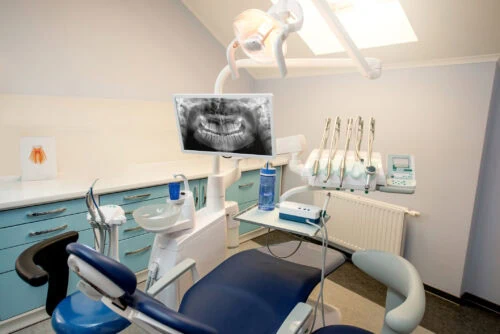Embarking on your professional journey can be both exciting and daunting. Whether you’re just stepping out of school or looking to make a significant career shift, understanding how to effectively set and communicate your career goals is essential. In this guide, we will explore how crafting precise career goals statement examples can significantly enhance your job applications and interviews.
A well-defined career goals statement not only sharpens your focus but also helps potential employers understand your career aspirations and how they align with their organizational objectives. Whether you’re preparing your resume or gearing up for job interviews, a solid career goals statement can set you apart from the competition.
So, let’s dive in and learn how to craft compelling career goals statements that resonate with your professional ethos and make you a top candidate in any job market!
Understanding Career Goals Statements
Career goals statements are critical pieces of your professional portfolio. They clearly outline your professional intentions, aspirations, and the actionable steps you intend to take to achieve your career targets. A well-crafted career goal statement guides your career path and helps keep your professional journey on track.
What Are Career Goals Statements?
A career goal statement, often part of resumes and job applications, is a brief but impactful description that summarizes an individual’s career intentions. Typically one to three sentences long, this statement not only conveys your career ambitions but also showcases why you are suited for such paths.
Components of a Strong Career Goal Statement
- Clarity: Straightforward, leaving no room for ambiguity about your career directions.
- Alignment: Matches your professional skills with the goals set and links to broader career or industry opportunities.
- Inspiration: Motivates you and others by highlighting achievable objectives.
Benefits of Having a Career Goals Statement
Besides providing a roadmap for your career, career goals statements have several benefits:
- Increases your chances of getting hired by aligning your goals with job roles.
- Helps you maintain focus on short-term and long-term professional objectives.
- Enhances your resume’s effectiveness by integrating with other resume components reviewed in our
Effective Resume Writing Guide.
Understanding and articulating your career goals encourages you to develop a deeper understanding of your personal aspirations and values, which is essential for authentic self-presentation during interviews. For further insights, check out the 20 Interview Questions you might face focusing on career objectives.
Take advantage of resources about personal development and goal setting available through educational platforms. A good place to start is the U.S. Department of Education, which offers advice on educational and career planning.
Why Career Goals Statements Matter
Identifying clear career objectives is more than a mere formal requirement in job applications or a section on your resume; it’s a strategic tool that influences your career progress.
Alignment with Organizational Goals
Organizations look for individuals whose career aspirations align with their goals. A well-stated career goals statement helps hiring managers understand how they can contribute to the company’s growth, setting the stage for mutually beneficial relationships. This alignment is crucial in finding roles within diverse and inclusive companies, such as those profiled in our guide on Inclusive Job Opportunities.
Foundation for Career Advancement
Your career goals statement is a foundation for professional development discussions and decisions. By clearly stating your goals, you provide a basis for evaluations, promotions, and even mentorship opportunities within your chosen field.
Enhances Professional Networking
A clear career goals statement can enhance your networking opportunities by making your professional intentions known. It acts as a conversation starter and a point of reference in professional settings, helping you to connect with like-minded individuals and industry mentors.
Furthermore, individuals with clearly defined career objectives are often more motivated and can strategically navigate professional development resources, like those offered by CareerOneStop, a U.S. Department of Labor tool providing career resources.
As your career unfolds, continuously revisiting and refining your goals statement ensures it evolves with your experiences and ambitions. This dynamic process is indispensable in career planning and achieving professional success.
How to Write Effective Career Goals Statement Examples
Crafting a compelling career goals statement requires focus, clarity, and a deep understanding of your career path. Here are essential steps to ensure your career goals statement stands out.
Start with Self-Reflection
Begin by identifying what you truly want from your career. Think about your passions, strengths, and where you see yourself in the future.
Be Specific
General statements don’t stand out. Specify the job you want, the skills you will use, and the impact you wish to have.
Use Action Words
Employ action verbs like ‘achieve’, ‘develop’, ‘build’, or ‘create’ to convey a strong sense of intent and initiative.
Tailor Your Statement
Customize your career goals statement for different applications. Align your goals with the job description and company culture.
Mention Professional Growth
Include how you plan to grow and what you aim to contribute to your field. This reflects your commitment to continual professional development.
Keep It Concise
Aim for a crisp, clear statement communicating your goals in a few compelling sentences.
As a guide, review examples of successful career goal statements to understand what makes them effective. Also, these sample statements can help inspire your own unique statement, drawing a clear picture of where you’re headed professionally.
Take advantage of online tools like those at My Next Move by O*NET, which offers interactive career exploration tools that can inspire and refine your career goals.
Showcasing Career Goals Statement Examples
Here are some examples tailored to different career stages and industries to illustrate how effective career goal statements are structured.
Entry-Level Position in Marketing
“I aim to leverage my Bachelor’s degree in Marketing and my internship experience to grow as a digital marketing specialist at a forward-thinking company, focusing on social media strategies and SEO to drive brand engagement and sales.”
Mid-Career IT Professional
“My career goal is to advance to a senior IT project manager position, using my ten years of experience in project coordination and team leadership to enhance operational efficiency and team productivity at a leading technology firm.”
Executive Leadership
“As an experienced executive, I seek to take on a CEO role where I can apply my 20 years of strategic management and innovation to lead a fintech company towards global competitiveness and market leadership.”
Recent Graduate Seeking NGO Role
“I am dedicated to starting my career in the non-profit sector, intending to contribute to project management and evaluation in an international NGO that focuses on education, hoping to use my skills to impact learning outcomes globally.”
These examples showcase the diversity in career goals statements, emphasizing personalized aspirations and aligned career paths. For detailed tips on crafting your resume with such goal statements, consider exploring resources at Resume.org, an excellent source for resume-building guidelines.
Using these examples as a basis, start crafting your unique career goals statement that reflects your career aspirations and intended achievements.
Tips for Personalizing Your Career Goals Statement
Customizing your career goals statement can significantly enhance its relevance and impact. Here are tips to personalize your statement effectively.
Reflect Personal Values and Interests
Include elements that reflect your personal values, passions, and the industries or roles you are genuinely enthusiastic about. This personal touch makes your statement stand out.
Consider Your Unique Skills
Highlight unique skills and experiences that set you apart from other candidates. This not only personalizes your statement but also strengthens your candidacy.
Link to Long-Term Career Vision
Ensure your career goals statement outlines a long-term vision, demonstrating foresight and ambition. This shows that you’re thinking ahead beyond just the next role.
Relating Career Goals to Your Resume
Integrating your career goals statement into your resume can significantly enhance the narrative of your professional journey, making you a more attractive candidate.
Place It Strategically
Position your career goals statement at the top of your resume, near your name and contact information. This grabs attention right from the start.
Match It with Your Skills Section
Ensure your listed skills and experiences support the career goals outlined. This consistency boosts your resume’s impact.
Show Relevant Achievements
Link past achievements to your personal career goals. This demonstrates your commitment and capability towards achieving these goals.
For instance, if you want to become a software development manager, highlight your successful projects and leadership roles in tech teams. This can solidify your claim to the target position.
Your resume should tell a story, with your career goals statement serving as the thesis statement that guides the narrative. Every element, from your skills to your experiences, should connect back to these career goals.
Connecting Career Goals to Interview Questions
Your career goals statement can play a pivotal role during job interviews, offering a clear path to discussing your professional plans and how they align with the company’s objectives.
Prepare to Discuss Your Statement
Be prepared to elaborate on your career goals statement when asked in interviews. This shows confidence and clarity in your professional direction.
Use Examples to Demonstrate Commitment
Bring examples that demonstrate your commitment to your career goals. For instance, discuss specific training or projects that align with your long-term objectives.
Tie Goals to Company Mission
Illustrate how your career goals align with the company’s mission and values. This shows you are not only invested in your growth but are also a good fit for the company.
For more insights into what questions you might expect about your career goals and how to answer them, see our guide on 20 Interview Questions. Additionally, valuable resources like Glassdoor provide real interview questions and reviews that can help prepare for interviews tailored to specific companies.
Effectively linking your career goals with potential questions can display foresight and preparedness, essential traits that employers look for in potential candidates.
FAQs
Addressing the most frequently asked questions about career goals statements can provide deeper insights and practical guidance for perfecting your own.
How often should I update my career goals statement?
Review and adjust your statement annually or when considering a career change. This keeps it relevant to your current aspirations and market demands.
Is it necessary to include quantifiable objectives in my career goals statement?
Including quantifiable objectives can be highly effective as it gives clear targets for you and potential employers to gauge progress.
How do I balance ambition and realism in my career goals statement?
Aim for a realistic assessment of your skills and market opportunities while setting high but achievable goals. This balance shows ambition and practicality.
What are common mistakes to avoid when writing career goal statements?
Avoid vague statements, jargon, or overly ambitious goals that don’t align with your experience. Clarity and realism are key.
Can I have different career goals statements for different job applications?
Yes, tailoring your statement to align with the job description and company culture can increase your chances of success. Each application should reflect how you fit specifically with the job and company.
Keeping these FAQs in mind will help refine and effectively utilize your career goals statement, enhancing both your resume and your interview responses.
Conclusion
Crafting an effective career goals statement is pivotal in setting a clear direction for your professional journey. By articulating where you want to go and how you plan to get there, you not only prepare yourself for potential opportunities but also present a compelling narrative to prospective employers.
Remember, a tailored career goals statement is a significant tool in your job-seeking arsenal, enhancing your resume and enriching your interview discussions. It shows hiring managers that you’re forward-thinking and dedicated, qualities that are invaluable in any professional setting.
Take Your Career to the Next Level
If you are ready to propel your career forward, join Diversity Employment today. It’s time to connect with a diversity job board and companies that value diversity and are eager to support your career aspirations. Your next job opportunity awaits!




